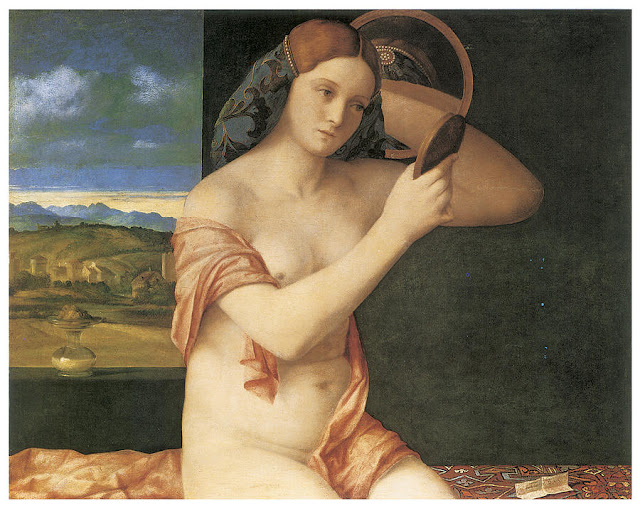
Tú no sabes quién soy y ni siquiera leerás esto, y en absoluto importa,
porque al final lo escribo para mí mismo y para a quien le salga de las ganas
leerlo, y que sirva también como mi testimonio de lealtad después de que muchos
han puesto tu integridad y tu santidad en tela de juicio. Yo sí sé quién eres
tú, eres Pedro, y al final eso es lo único que importa. Sé que eres un hombre y,
después de un hombre, un sacerdote, como yo. No eres un ángel, por lo tanto, el
factor humano y por ende la equivocación está presente en tu vida, como en la
mía y en la de todos. Te has equivocado, muchas veces, en el pasado y en el
presente, y has pedido perdón en voz alta. Me consta. Además de que está por escrito.
Te has atrevido a decir cosas que yo, sacerdote cobarde, me callo por no caer
mal, por vanidad, porque no me saquen la vuelta. Hablas de asuntos que nadie
quiere oír con valentía y con amor. Desacomodaste a la Curia de Roma y te
atreviste a decirnos a los obispos y a los sacerdotes que tenemos que oler a
las ovejas de nuestros rebaños, es decir, vivir como lo que somos: ministros
ordenados, servidores del Señor. Hoy el mundo clama justicia, y tú nos hablas
de misericordia, como lo hacía Jesús. Rompiste el riguroso protocolo de Roma y
tomaste el camino de la sencillez y de la austeridad y te fuiste a vivir a un
sitio sobrio y sencillo, dejando a un lado, sin aspavientos ni alharacas, la
grandeza del palacio apostólico. Tus gozos, como lo eran en Jesús, son las periferias,
los enfermos, los olvidados, los que nada importan. Caíste mal desde un principio
porque nos advertiste sobre lo mucho que soñamos con planes apostólicos expansionistas,
meticulosos y bien dibujados, pero propios de generales derrotados. Muchos se enfurecieron
contigo porque nos recordaste que nuestra historia es gloriosa pero no por el
dinero y el poder, sino por ser historia de sacrificios, de esperanza, de lucha
cotidiana, de vida deshilachada en el servicio, de constancia en el trabajo que
cansa. Te dieron la espalda porque nos invitaste una y otra vez a vivir en una
Iglesia en movimiento de salida de si, de misión centrada en Jesucristo, de
entrega a los pobres; por pedirnos que no nos dejemos robar el ideal del amor
fraterno. Llevas cinco años, con los ochenta y uno que llevas a cuestas, imparable,
encontrándote con viejos, jóvenes, niños, consolando viudas, inmigrantes, y
dispensando la ternura del Señor Jesús a víctimas de todo tipo, no solo a aquellas
que han sufrido a manos de los sacerdotes. No eres San Juan Pablo II, ni eres Benedicto
XVI, eres Francisco, y eres, para mí y para millones de personas, el Santo Padre,
el vicario de Cristo en la tierra. Te acusan de acoger a los divorciados y de
ser amoroso con ellos, de atreverte a decir que los sacramentos no se cobran,
de ser cercano y cariñoso con las personas homosexuales, de sentarte a tomar café
-o un mate- con quienes no creen en Dios o incluso reniegan de él. Muchos querían
en ti un juez y nos hemos encontrado con un pastor; querían un leguleyo y un
fariseo, y te presentas a ti mismo como un simple pecador, como un hombre
profundamente necesitado de la misericordia Dios, como un obispo -el de Roma,
por cierto- que desde el minuto cero de su pontificado habló bien de su
predecesor y nos pidió que rezáramos él. Por todo esto y por otro montón de
cosas dicen que eres culpable. Pues mira, al final sí, sí que eres culpable. Culpable de abrirnos los ojos, el entendimiento y el corazón a la persona
del Señor y de suplicarnos que lo incluyamos a Él en nuestras vidas. Culpable de pedirnos que hagamos un serio
y grave examen de conciencia y después oración y ayuno. Culpable de poner a la Iglesia en movimiento. Has hecho al frente
de la barca de Pedro un bien inconmensurable y hoy te gritan encubridor, traidor
y mentiroso, y se atreven ¡Ay! A pedirte cuentas de tu vida y de tu ministerio,
como si fueras un político de quinta, ¡Qué huevos tiene esa gente, Santo Padre,
qué huevos tiene; muchos de ellos obispos y sacerdotes! Pero, sabes (¡por supuesto
que lo sabes!) al Señor le sucedió lo mismo: acusaciones, escupitajos, corona
de espinas, clámide, un juicio y el escarnio de la cruz. Y padeció sereno, como
sereno nos decías el otro día en la Eucaristía que “La verdad es
mansa, la verdad es silenciosa, la verdad no es ruidosa”. ¿Llego tarde a decirte todo esto? Sí. Sí llego tarde porque soy cobarde, porque
desconfié, porque no me atrevía a dar la cara por ti, como tú la has dado tantísimas
veces por mí, por mi sacerdocio y, antes, por la Iglesia de Dios, de la que
formo parte. Hoy te digo, querido Santo Padre Francisco, que tienes mi obediencia,
mi lealtad y mi pobre oración. Mi sacerdocio también, que es el sacerdocio de
Cristo. Y que Dios, en su infinita misericordia, te sostenga ¡nos sostenga! nos
muestre su rostro y nos ayude a caminar con paz y alegría, sin prisa y sin pausa,
el largo camino de purificación que tenemos por delante • AE













